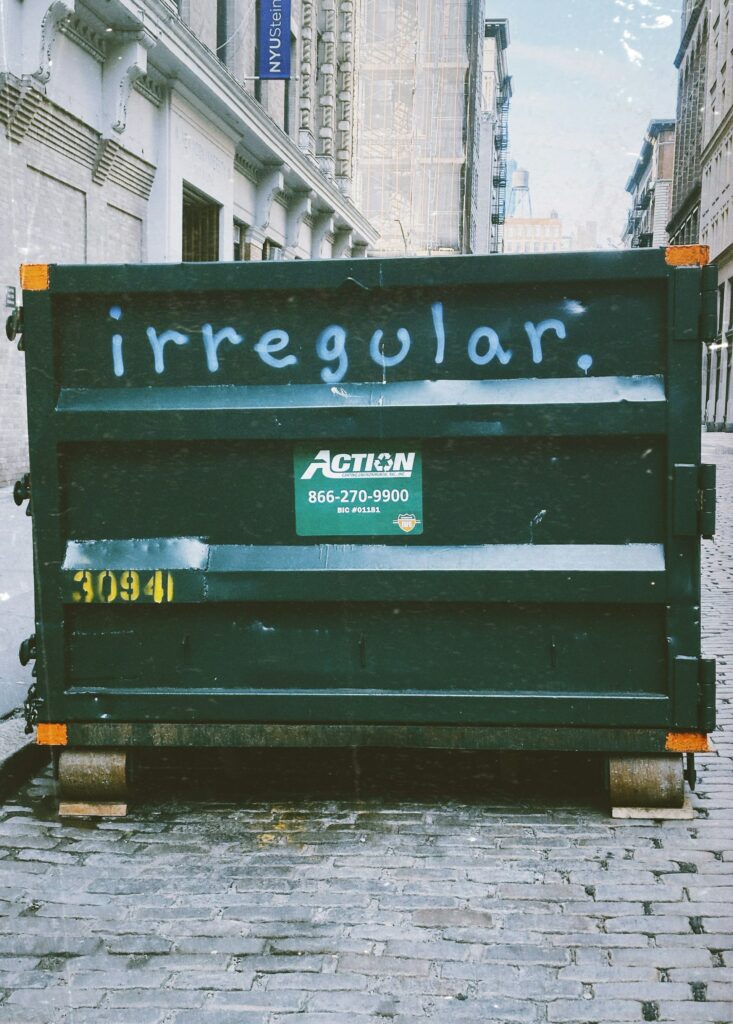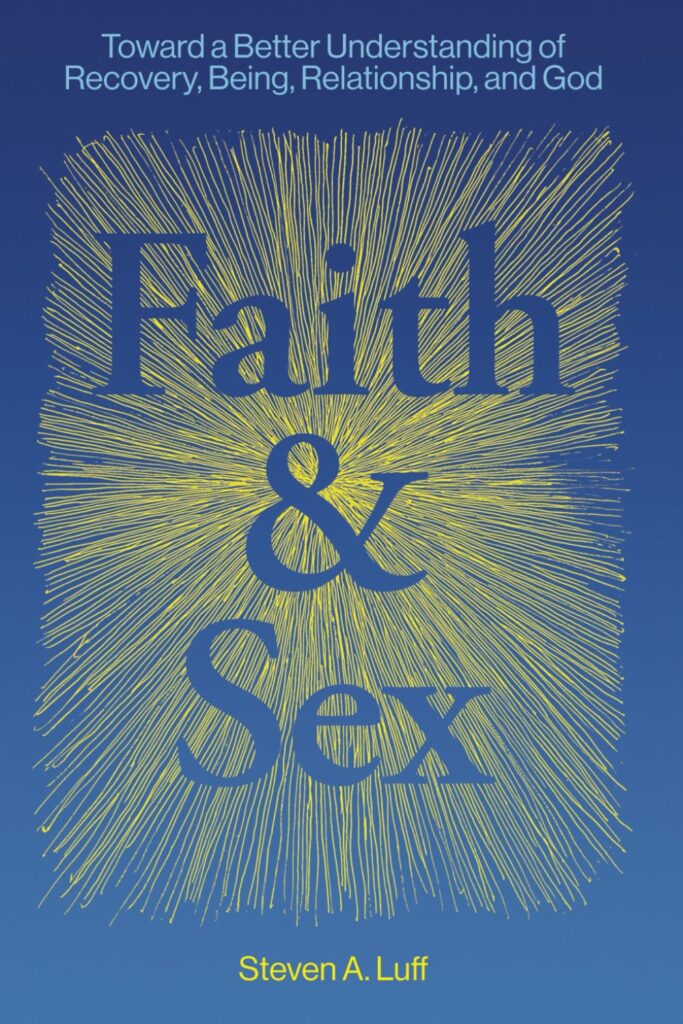Shared by permission:
The following is an excerpt from Faith and Sex: Toward a Better Understanding of Recovery, Being, Relationship, and God by Steven A. Luff, M.Div, MA. Luff is a Licensed Marriage and Family Therapist in the state of California and runs the Faith & Sex Center in Los Angeles.
Chapter 12, “Poor Decisions are Decisions Made Poorly,” explores the nature of accountability, both the benefits and pitfalls.
Table of Contents
Is an accountability partner a silver bullet?
“Accountability partner” is a term that’s kicked around a lot in Christian circles. I hear it on a regular basis, especially in the groups I lead.
“I need to get an accountability partner,” someone will say.
Or “My accountability partner tells me I need to….”
Sometimes I think people get an accountability partner as a kind of badge to demonstrate their sincerity to change, even if they really aren’t that sincere about it.
Or they get an accountability partner as a silver bullet to ward off the werewolf of sexual temptation. The trouble with this thinking is that the werewolf isn’t “out there”: the werewolf is them—is you.

Are you trying to recreate a parent/child dynamic with accountability?
Not to sound too much like a therapist here, but I also think people who get accountability partners do so in an effort to recreate the dynamics of their parent/child relationship. The accountability partner is there to make decisions for you, shame you, judge you, belittle you, or otherwise do for you what you should be doing for yourself.
The accountability partner becomes the police, or God on His Throne of Judgment from whom you seek both absolution and punishment.
This is yet another illusion. Whoever it is in whom you confide has his own life to live. Despite the fantasies you may have about him, the truth is he has his own life to deal with. He is concerned about his own family, career, faith-life, or mental health. Either that or he is in a codependent relationship with you and wants you to be better, or sick, so that he can feel needed.
However you look at it, if you picked the right accountability partner, they can help you make better decisions. And if they can’t, they can at least be a mirror reflecting the good or bad decision you’re about to make.
I often joke with clients that I’m sure that if they called or texted their brother and told him, “I’m in an alley downtown and about to have sex with a sex worker behind a dumpster,” their brother wouldn’t need to say much for the client to realize that what they’re about to do is disastrous.
Forget calling. If they took just a minute to compose a text with that same information, even without sending it, they’d probably see how unhealthy what they’re about to do is.
Easier said than done.

What holds you back from a healthy, reciprocal accountability partnership?
Why is it so difficult to include people in our decision-making processes, especially when it comes to compulsive behavior?
There appear to be two answers.
The first answer is because, in truth, we don’t really want to change.
The second answer is more complicated. The same shame and fear of vulnerability that leads us into our fantasy life is the same shame and fear of vulnerability that prevents us from relying on healthy and reciprocal relationships in times of need.

As a therapist, like anyone else, I can often fall into the habit of linear thinking. I do this more frequently when I’m tired or have too many of my own stresses going on in life. When I become like this, I will forget that whatever goal I am helping a client work toward may not actually be the goal he or she is interested in achieving.
Truthfully, the client may not even be aware that the assumed goal isn’t what he or she is after.
After months and months of a client returning to his or her behavior without much progress, I will often take a step back and, without judgment or ridicule, ask in the most genuine tone possible:
“What are your recovery goals?
What behaviors are you trying to change?”
If I’ve done my job right, I will have created a space safe enough for the client to explore what they really want to change.
Oftentimes wanting to change is in itself an illusion or fantasy.
Often what these questions provoke in clients is the realization that they aren’t ready to let go of their substances of abuse or compulsive behaviors.
And that’s fine: we’ll work on other things until they’re ready.
Why is accountability important to real change?
But there are some clients who state rather emphatically that they do want to change their behavior; they do hate what their behavior has done to them and their relationships and careers.
They are exasperated and don’t know what to do after repeatedly returning to their substances of abuse or compulsive behaviors. It is at these times that I ask them point-blank, “Whom are you including in your decision-making processes?”
Upon asking questions like this I am quite frequently faced with either abject resignation or instant dread.
I can see it in my clients’ eyes. You mean I need to invite people into my world? Their expressions seem to say.
And I will probe, “What’s going on inside of you right now?
What are you thinking?
What are you feeling?”
Most of the time my clients don’t know what they are thinking or feeling— because this is precisely what they have been trying to avoid for many years through their substance abuse or compulsive behavior.
With a little bit of exploration into the gooey, sticky bundle of emotions that is beneath this question is a deep fear of having to rely on someone else, especially in moments of shame and weakness.
This fear of having to rely on someone else, of having to open oneself to others: this is the werewolf of sexual temptation.

Not pornography.
Not sex workers.
Not anonymous sex.
The werewolf of sexual temptation is the shadow self, that part of ourselves that is walled-off and fearful, that part of ourselves that is our five- or seven- or twelve-year-old self that is deathly afraid of asking someone for help with our pain or hurt or mistakes because we fear we will be ridiculed, laughed at, rejected, or worse, physically hurt.
It is this which we are compartmentalizing (fragmenting).
Essentially, this is “The Wall” referred to in chapter 3.
14-Day Free Trial
Protection From Pornography
Change your habits, change your life: Start our 14-day free trial to help get rid of pornography for good.
What is essential to a healthy accountability partnership?
Recovery from substance abuse and compulsive behavior doesn’t necessarily entail creating blockades against access to your substance of abuse or compulsive behavior, although there may be a season early on in which you need to do this.
To recover from substance abuse
and compulsive behavior is to be willing
to make yourself vulnerable to a trusted other
who can disconfirm deeply ingrained beliefs that you are bad, defective,
or unworthy of intimate connection.
This must happen before you act out and is the purpose of an accountability partner.
You contact your accountability partner to help you make decisions that confirm your goodness, value, and worth.
Faith and Sex: Toward a Better Understanding of Recovery, Being, Relationship, and God explores the underlying reasons for compulsive behavior.
While offering practical steps toward recovery, it also demonstrates the transformative power of an unconditionally loving community and presents an understanding of God that calls us to experience the Unknown with trust and wonder, rather than with an overwhelming pressure to please.
We’re so grateful for this resource from Steven Luff, who in addition to his therapy practice at Faith and Sex, also partners with LiveFree and Small Groups online.
To find a supportive porn recovery community and take a step toward finding an accountability partner, check out Small Groups Online.
14-Day Free Trial
Protection From Pornography
Change your habits, change your life: Start our 14-day free trial to help get rid of pornography for good.







